Humans have always chosen the best companion pets for ages as fun new family members. The pets often hang out with family members and freely roam in the home. However, most reptiles are often restricted in small, poorly designed, and carelessly maintained enclosures. Most of them may become withdrawn, passive, and not much fun to be around, making most reptile enthusiasts wonder: Do reptiles get lonely? Do reptiles have feelings for their owners? Do Reptiles Feel Emotions?
Either these questions are only a result of people’s tendency of projecting human emotions on non-human entities ( anthropomorphizing ), or indeed reptiles get lonely in captivity.
This article will share some interesting facts about reptiles that will make you think again about what you’ve believed about reptiles. So if you have been wondering if reptiles get lonely, then read on.
In this article
Aspects of Reptile Behavior.
Every reptile owner needs to understand their pet’s natural disposition. A higher ability to differentiate between normal and abnormal reptile behaviour will be a step closer to telling if reptiles get lonely.
We cannot manage to go through every single species, and even if we did, not everyone would agree on what a certain reptile’s behaviour should be considered to be. So why not just include all the major behaviour categories? In the meantime, we will take a broad approach to critical reptile behaviour influencing aspects.
Solitary Reptiles vs Social Reptiles
Reptiles are usually solitary creatures. Some species, such as green iguanas, bearded dragons, box turtles, king snakes, and boa constrictors, are more friendly towards humans and can even make good pets if domesticated provided with adequate care.
Therefore, it should not be alarming that your pet is feeling lonely. Sometimes reptile pets want to be on their own even as they have been domesticated.
Life History of Your Reptile
Reptiles are naturally wild species. With this hindsight, most owners ask if reptiles have feelings for their owners. This is also why domesticated reptiles are often referred to as reptiles in captivity.
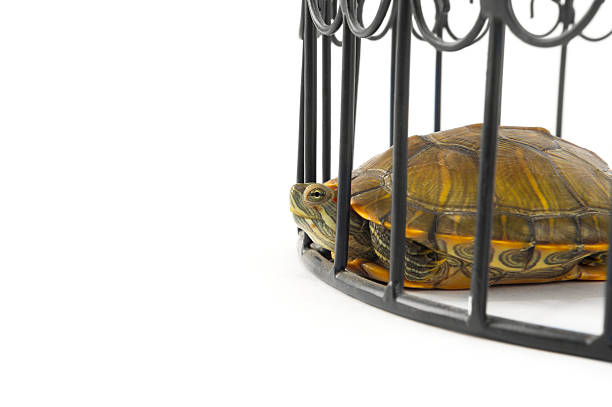
Reptiles newly captured from the wild for domestication or study will naturally keep to themselves. Most keepers will pity the reptiles during their initial captivity, assuming that reptiles get lonely away from their families in the wild. However, this is not necessarily the case bearing in mind that the reptiles could also be solitary in the wild.
On the other hand, reptiles bought from breeders or adopted thought the free reptiles to good home programs will showcase a different trait. These reptiles with historical interaction with humans will be more forthcoming and interactive with their new owners.
Understanding, therefore, the history of your reptile pets will help you better appreciate their behaviour and stop worrying if reptiles get lonely.
Physiological Behaviors of Reptiles.
If you’ve ever been to an aquarium, you’ve noticed that many of the reptiles move strangely. It’s like they are moving in slow motion as if they are frozen in place.
We don’t always appreciate what is happening in the animal kingdom around us. And the more we don’t realize how different animals are, the less we realize what they have going on inside them. Due to this, it is not surprising when most people can not tell if reptiles feel emotions or if reptiles get lonely.
In this section, I will go over the physiological behaviours of reptiles. I believe a better understanding of these normal will help address common misconceptions.
1. Brief Sedentary periods after feeding;
A sedentary period is when a reptile stays inactive with limited or no movements as usual.
Large Carnivorous reptiles such as Alligators, Crocodiles, Monitor Lizards, or even Pythons often go into a brief inactive period after a heavy meal. Such a brief sedentary period is characterized by little to no movement, and one may misjudge it for loneliness.
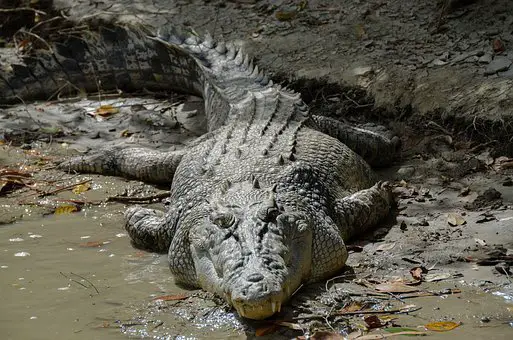
If you are a new pet keeper or hobbyist of large reptiles, be aware of this normal physiological behaviour. Certainly, this in no way suggests that reptiles get lonely.
2. Hypoactivity Does Not Mean Reptiles Get Lonely;
Similar to a sedentary characteristic, hypoactivity in reptiles is a period of limited physical activity. However, hypoactivity in reptiles is a stress indicator, and the source of stress needs to be investigated quickly. Hypoactivity being one of the common ways reptiles communicate pain and stress to humans, your swift responsiveness may save their lives.
Common stressors that could lead to hypoactivity include;
- Discomfort due to infection or organ dysfunction
- Transport trauma caused by recent movement to a new location.
- Pain and confusion after a fall or dropping from a high place.
- Stress due to a co-occupant attack or harassment in their shared habitat.
With this understanding, reptiles may be facing a life-threatening situation when they seem bored and inactive. Too serious than loneliness.
3. Head-hiding due to harsh environmental factors;
In humans, lonely people are observed to be often indoors with little desire to interact with others. This is not true for reptiles when they hide their heads in their hideouts more than usual, even when food is presented.
Habitat /environmental excesses such as too much light can be very stressful and irritate the reptile eyes. Most reptiles will be observed hiding their heads specifically to shield their eyes from the strong light. Head hiding, therefore, does not imply that reptiles get lonely.
To offer your pet reptiles a good and stress-free experience, rectify any deficient and inappropriate environmental conditions.
4. Brumation
Brumation is a state or condition of sluggishness, inactivity, or lethargy exhibited in reptiles during the cold seasons or extended low temperatures in their habitat. We call it hibernation in other animals while it is brumation in reptiles. You can read more on brumation here.
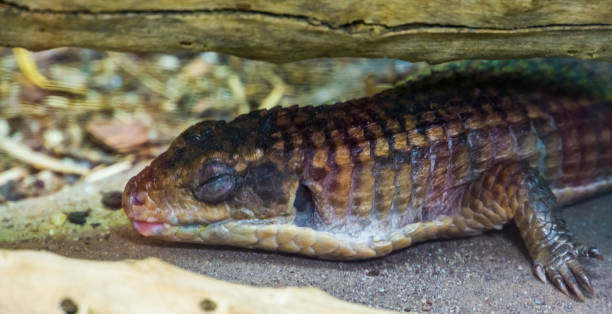
Being a natural physiological behaviour in reptiles, cold seasons, or extended low temperatures in their habitat should be your preparatory indicator. Allow the reptiles to take their natural physiological without unnecessarily disrupting them.
Do reptiles get lonely? Maybe yes, maybe no, but brumation is not an indicator of reptile loneliness.
5. Estivation Period Does Not Mean Reptiles Get Lonely.
Estivation is long-term dormancy or a state of physical, metabolism and mental inactivity, often called torpor, during the hottest part of the year. This enables reptiles to avoid the summer sun’s heat or if their habitat is too hot. We can informally call this ‘summer brumation’.
It is easy for novice keepers to mistake summer estivation for loneliness. This is because dormancy and inactivity are usually associated with winter and cold season brumation.
When you observe lethargy in your reptiles, among other reasons as above, have a close look at the temperature of their habitat. Too hot temperatures for too long could easily turn fatal if left unattended.
6. Reptiles Nocturnal Nature is not being Lonely
Nocturnal reptiles are primarily active during the night. Depending on the species of reptile you keep, nocturnal species will be asleep during the day when you need to play with them. This will certainly be a mismatch for your schedule that you might not have been aware of when choosing your pet reptile.
If your reptile of choice is nocturnal, don’t neglect to replicate natural conditions. Light and warmth are essential for them during the day, while darkness and cooler temperatures are important at night.
When wondering if reptiles get lonely, do not base it on the below nocturnal reptiles, which will love to naturally sleep during the day.
- Leopard gecko
- Boa constrictor
- Mourning geckos
- African fat-tailed gecko
- Ball python
- Sand boa
- Gargoyle gecko
- Crested gecko
7. Do Reptiles Get Lonely During Shedding Season
Reptiles such as snakes and lizards slow down activities and eventually even stop moving during their shedding season. Shedding is when reptiles get rid of their old skin replace it with new skin underneath.
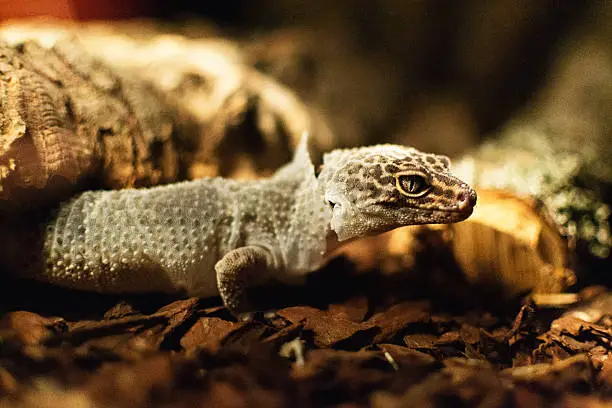
Skin shedding in reptiles is a natural physiological process that continues periodically throughout their lives to grow.
Therefore, when your reptiles’ skins start peeling off, and you observe little to no physical activity, never worry about their loneliness.
Conclusion.
So, what will be your answer when asked if reptiles get lonely?
Remember, your domesticated pet is in captivity. Captive conditions are any circumstances in which wild animal populations are artificially kept alive in human-designed environments. In many instances, captivity substitutes the natural, free-ranging environment for unnatural, non-natural, or poorly designed alternative surroundings.
These alternative artificial environments will inevitably modify your reptiles’ natural behaviour in many instances. Above all, it is impossible to accurately tell what is going on in our pets’ heads.
Therefore, there is no right answer if reptiles get lonely. You must study and understand your pets’ natural behaviour and habitat. After that, you must put all effort to replicate their natural habitat in captivity.
These studies of reptile behaviour and Assessing reptile welfare using behavioural criteria will be a good starting point to better understand your reptiles in depth.

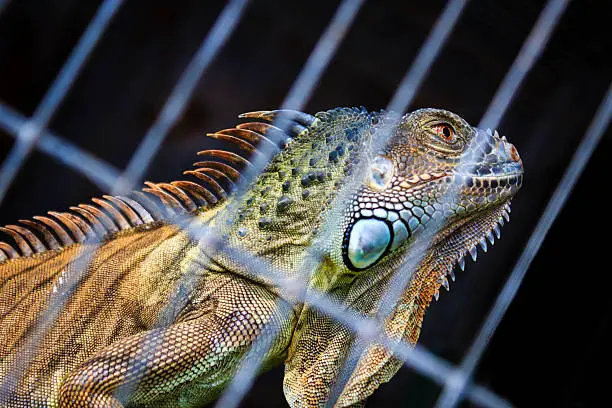
Starting a voyage into the multifaceted world of fashion and style reveals a wide spectrum of elements that mold not just the outfits we select furthermore our interpretation of self-image and public perception. Figuring out the unfolding history of various styles [url=https://www.arketdk.com/]ARKET Taske[/url] offers an essential understanding with the aim of recognizing the constant return of stylistic movements, in which earlier aesthetics occasionally are revived including updated interpretations. Taking detailed note of the nuanced relationship between how colors work together, advancements in fabrics, along with the principles of apparel design and production allows for a more insightful way of engaging with [url=https://www.fred-perry.com.de/]Fred Perry Hemd[/url] building a cohesive wardrobe. Furthermore, the increasing prominence of green and socially accountable actions in the world of apparel highlights a significant shift aimed at greater responsibility and a richer comprehension regarding the effects on communities and ecosystems of what we decide to wear. Finally, the art of dressing remains a vibrant expression of the spirit of the times as well as gives a constant avenue in order to exploring one’s own tastes as well as the pleasurable experience of displaying our unique characters in our daily interactions.
[url=https://pikstree.com/ticket/view/49667411]Fashion Unique Master Closet Your Guide[/url] [url=https://radiotrombetas.com.br/tire-sua-duvida-participe/?duvida=feita]Approach Smart Achieve Style Better Secrets[/url] [url=http://fexdvers.com/ticket/view/59751899]Fashion Amazing Transform Wardrobe Real Method[/url] 67c3cc8